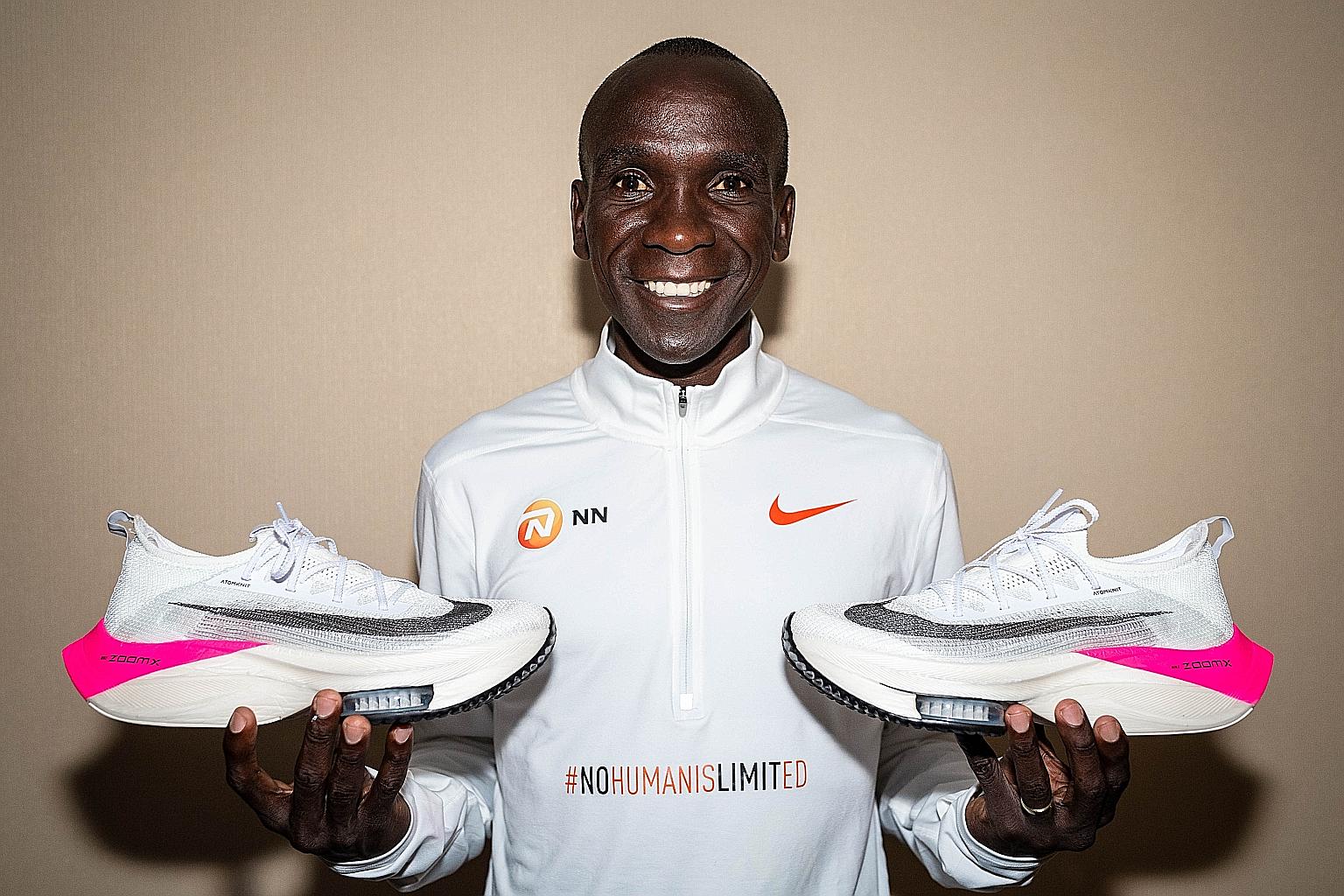World Athletics to level running field with shoe loans
Sign up now: Get the biggest sports news in your inbox

Shoes with similar technology to the Nike Vaporfly model, as worn by Eliud Kipchoge during his effort at breaking the marathon's two-hour barrier in Vienna last October, will be loaned to athletes who do not have access to them.
PHOTO: NIKE
PARIS • World Athletics announced on Tuesday it was creating a scheme to lend elite runners without sponsorship deals the same carbon-fibre versions of shoes that have revolutionised road running, in an acceptance that the advances in technology are irreversible.
Elite athletes wearing versions of the Nike Vaporfly, the carbon plates of which lend a propulsive sensation to every stride, have set a host of personal bests and Nike runners have practically swept the board in long-distance events.
They took 31 of the 36 podium places at the six marathon majors last year.
Eliud Kipchoge wore an advanced version of the shoes when the Kenyan become the first man to break the two-hour barrier for the marathon in October last year. The shoes led to accusations that they create unfair competition.
Track and field's governing body has already limited the thickness of the sole to 40 millimetres, a rule it kept in place on Tuesday. In a new initiative, it said it would lend athletes the shoes if they do not already receive them from sponsors, under a newly-created "Athletic Shoe Availability Scheme".
World Athletics said the rules are designed "to maintain the current technology status quo" until the Tokyo Games.
After that, a newly formed Working Group on Athletic Shoes, which includes representatives from shoe manufacturers and the World Federation of the Sporting Goods Industry, will work "to set the parameters for achieving the right balance between innovation, competitive advantage and universality and availability".
World Athletics chief executive Jon Ridgeon said the Tokyo Olympics postponement had given the governing body "more time to consult stakeholders and experts and develop amended rules that will guide the sport through until late 2021".
He added: "We have a better understanding now of what technology is already in the market and where we need to draw the line to maintain the status quo until after the Tokyo Games."
Meanwhile, World Athletics is considering a written request from the Russian Athletics Federation (Rusaf) to delay a planned review after it failed to pay a doping fine.
World Athletics is set to discuss the situation with Rusaf today and may completely revoke its status, ending hopes for Russian athletes to compete under a neutral flag.
This has been a looming threat after the failure by Rusaf to pay half of a US$10 million (S$13.7 million) fine by July 1, part of a set of sanctions for breaching anti-doping rules.
Russia has been in crisis since 2015 when it was banned for repeated doping scandals, and only a smaller group of Russians were cleared to compete at the 2016 Olympic Games.
The world body had frozen the process of allowing clean athletes to compete as neutrals last November but then allowed 10 athletes to be authorised in exchange for the fine being paid.
Yevgeny Yurchenko, who became Rusaf president in February to deal with the crisis, said on July 1 that Rusaf "does not have the money" in a blow to athletes who had hopes to compete in next year's Games. He quit two weeks later.
Frustration has been building in the athletics community, with some top competitors leaving Russia while others have threatened to quit or switch countries.
AGENCE FRANCE-PRESSE


